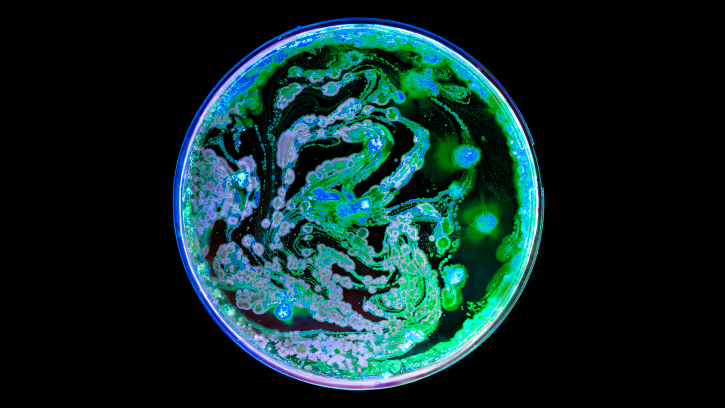We spoke to L'Oréal Groupe and Abolis about its new biotech partnership, which also includes German ingredients manufacturer Evonik.
Leading beauty multinational L’Oréal Groupe has signed a tri-party agreement with French startup Abolis Biotechnologies and the German ingredients manufacturer Evonik to “provide turnkey solutions for biotech innovation.”
The businesses said that the partnership will “support an end-to-end program to develop a new generation of bio-based ingredients.”
L’Oréal Groupe, which invests over than €1bn in R&I every year, participated in Abolis’s €35m Series A funding round, as did Evonik.
The new agreement will enable purpose-made, sustainable ingredients to be produced at the scale needed to satisfy global demand.
It will also help to accelerate L’Oréal’s commitments that prioritise bio-based ingredients in its beauty formulations.
Industrial biotechnology and microbiome can impact multiple actives
Abolis is a biotech startup based in Genopole, France, that has unique expertise in tailor-made industrial solutions based on microorganisms for a wide range of industries including food, healthcare and cosmetics.
The new investment will allow the startup to expand its capabilities to develop microbe-powered solutions that will help industries transition to more sustainable business models.
The two companies had previously collaborated in 2020 and this led to an extended lab set-up in 2022.
CEO at Abolis Biotechnologies, Cyrille Pauthenier, said that “industrial biotechnology and microbiome solutions are key technologies for a 100% biobased cosmetic formulation,” as well as a “new frontier for new actives and skin gentle solutions for anti-ageing and skin dysbiosis, and haircare.”
Pauthenier explained that Abolis has two main business activities:
“A customer comes with the need for a molecule or a functionality to be produced at a given price and scale. We take the project from its requirements, and if the business case flies, we develop a micro-organism and a process for the production of this chemical in a renewable, environmentally friendly way,” he shared. “Once Abolis delivers the industrial process, which matches economic performance in a downscaled model of an industrial set-up, it’s up to our customer to industrialise, produce and commercialise the solution,” he explained.
“If a customer has an issue with an environment containing a microbial ecosystem (for example the skin or the gut), and uses chemicals to cure it (ie an additive, detergent, biocide…), through our subsidiary Microbiome Studio, we help them understand what is going on and how to get the desired effect by finding a different organism or different environmental conditions, avoiding or reducing the use of additives,” he continued.
Pauthenier said that industrial biotechnology and microbiome can have impact on multiple actives and performance additives of the formula of a cosmetic product
“It complements other technologies such as green chemistry and enzymatic process for other parts of the formula to get a 100%-biobased content (ISO16128),” he explained.
Pauthenier also shared that the company’s future plans included developing commercially to other industry segments and parts of the world and to “also invest in a handful of proprietary processes in nutrition, food and cosmetics,” which he said will remain undisclosed at the moment.
L’Oréal to explore a wide range of new bio-based ingredients
According to global head of advanced research at the L’Oréal Groupe, Anne Colonna, the partnership will allow the company to explore a wide range of new bio-based ingredient possibilities.
“Our goal goes beyond simply switching our existing raw material portfolio in line with our 2030 commitments,” said Colonna. “We’re aiming to push the boundaries of performance and discover entirely new ingredient territories that biotechnologies unlock compared to traditional chemistry.”
“This means exploring everything from biological actives for skin, scalp, and hair care to functional ingredients that enhance the texture and sensoriality of our beauty products,” she continued.
Colonna also said that the beauty multinational sees biotech as a “key driver in transforming our ingredient portfolio, enabling the development of high-performing, renewable, and sustainable ingredients.”
“This goes beyond simply finding replacements; it’s about rethinking production methods and even transforming how we conceive and design products and formulas,” she shared.
She also said that L’Oréal has a strong internal research program with over 4,000 researchers across the globe. “We recognise that innovation in biotech thrives on collective efforts. We believe in complementing our internal expertise with the best-in-class biotech partners around the world,” she continued.
“That’s why we began, as soon as in 2019, partnering with Abolis. Their state-of-the-art expertise is key to better understand and decipher biotech potential, and complement our own expertise in cosmetics formulation and consumer knowledge.”
Colonna said that the tri-partnership embodies a shared commitment to sustainable transformation, at scale. “It’s about creating a new paradigm for innovation where each partner brings their unique strengths – intellectual property, expertise, and capabilities – to the table, in a true end-to-end solution,” she said.
“Abolis brings its cutting-edge biotechnology platform for developing new bio-based ingredients. L’Oréal contributes its deep understanding of beauty consumers, formulation expertise, and global reach. And Evonik, with its presence in various sectors beyond beauty, provides large-scale manufacturing capabilities.”
Colonna also highlighted that this collaboration goes beyond just L’Oréal. “By working together, we aim to catalyse positive change across the entire beauty sector. This open innovation model will accelerate the development and adoption of more sustainable, bio-based ingredients,” she concluded.

